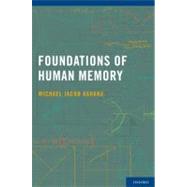
What is included with this book?
| Preface | p. vii |
| Introduction | p. 3 |
| Historical Background | p. 4 |
| Association, Context, and Episodic Memory | p. 10 |
| Methods Used in Studying Memory | p. 14 |
| The Laws of Repetition and Recency | p. 19 |
| Cognitivism | p. 25 |
| Organization of the Book | p. 32 |
| Item Recognition | p. 34 |
| Strength Theory | p. 35 |
| Multiple Sources of Strength? | p. 48 |
| Major Findings Concerning Item Recognition | p. 57 |
| Sternberg's Procedure | p. 65 |
| Summary and Current Directions | p. 74 |
| Attribute Models | p. 80 |
| Attributes | p. 81 |
| A Multitrace Distributed Memory Model | p. 85 |
| Similarity Effects | p. 94 |
| The Diffusion Model of Response Time | p. 96 |
| Context Revisited | p. 98 |
| Summary and Current Directions | p. 102 |
| *List-strength Effect | p. 103 |
| *A Unitrace Attribute Model | p. 105 |
| Associations and Cued Recall | p. 111 |
| Major Associative Tasks | p. 112 |
| Encoding and Repetition | p. 115 |
| Recency and List Length | p. 122 |
| Retrieval Errors | p. 124 |
| Retroactive Interference and Recovery | p. 126 |
| Proactive Interference | p. 131 |
| Context and Interference Theory | p. 132 |
| Similarity and Interference | p. 133 |
| Unlearning as Inhibition | p. 136 |
| Interference Theory: Concluding Remarks | p. 141 |
| Item and Associative Information | p. 143 |
| Summary and Current Directions | p. 147 |
| Models of Association | p. 151 |
| The Attribute-similarity Framework | p. 152 |
| Neural-network Models | p. 161 |
| Summary and Current Directions | p. 174 |
| *More on Linear Associators | p. 178 |
| *Project: Cued Recall in a Hopfield Network | p. 181 |
| Free Recall and Memory Search | p. 185 |
| Serial-position Effects | p. 186 |
| Retrieval Dynamics | p. 196 |
| Semantic Clustering | p. 204 |
| Intrusions | p. 212 |
| Repetition Effects | p. 214 |
| Summary and Current Directions | p. 218 |
| Models of Free Recall | p. 223 |
| Dual-store Memory Search Models | p. 223 |
| Testing Dual-store Models | p. 233 |
| Problems for Dual-store Models | p. 239 |
| Single-store Retrieved-context Models | p. 247 |
| Testing Retrieved Context Theory | p. 256 |
| Summary and Current Directions | p. 263 |
| Sequence Memory | p. 269 |
| Serial Recall and Memory Span | p. 270 |
| Serial-position Effects | p. 272 |
| Modality and Suffix Effects: Evidence for a phonological STS? | p. 275 |
| Recall Errors | p. 277 |
| Associative Asymmetry | p. 282 |
| Grouping Effects | p. 284 |
| Summary and Current Directions | p. 286 |
| Theories of Sequence Memory | p. 290 |
| Associative Chaining | p. 291 |
| Positional Coding | p. 294 |
| Eight Critical Findings | p. 296 |
| Chaining vs. Positional Coding | p. 305 |
| Hierarchical Associative Theory | p. 307 |
| Summary and Current Directions | p. 308 |
| References | p. 311 |
| Author Index | p. 341 |
| Table of Contents provided by Ingram. All Rights Reserved. |
The New copy of this book will include any supplemental materials advertised. Please check the title of the book to determine if it should include any access cards, study guides, lab manuals, CDs, etc.
The Used, Rental and eBook copies of this book are not guaranteed to include any supplemental materials. Typically, only the book itself is included. This is true even if the title states it includes any access cards, study guides, lab manuals, CDs, etc.